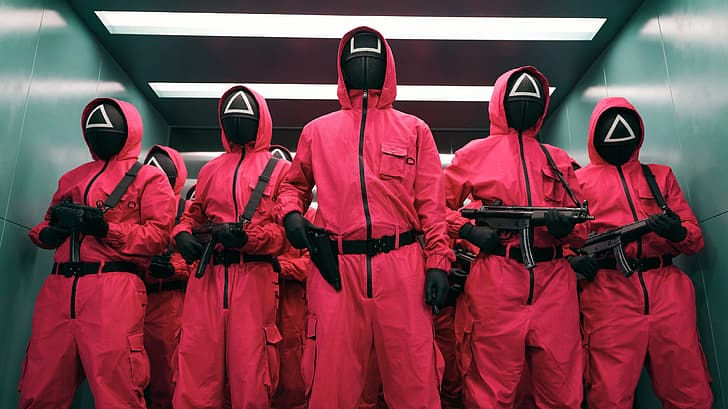20 SOMETHING EXISTENTIAL CRISIS
- radhika-sinha

- May 24
- 4 min read
Or, what your twenties really feel like in the age of hyper-choice.
This is my 10th article, and instead of sticking to the usual commentary on economy, pop culture and politics, I’m choosing to write something that’s been quietly sitting with me for the last few months. It's not a guide or a how-to. It’s a reflection—one I think many 20-somethings might resonate with.
Your twenties are supposed to be when you hustle, travel, build something meaningful, and fall in love—or so every Instagram Reel tells us. The messaging keeps changing with every scroll, and we’re all left wondering if we’re doing it right.

I’ve always been the kind of person who had her life planned to the last detail. I was, frankly, a little smug about it. But the last few months have been humbling. Starting over—personally and professionally—forced me to confront certain truths. I realised how much of my life was cushioned by privilege. Growing up in a service-class family, I was given everything I needed and more. My parents ensured I never felt the pressure they carried. But now that I’m building from scratch, I’ve started to see life through a more reflective lens.
Like most of us, I spend an unhealthy amount of time on Instagram and LinkedIn. Not for stalking—but for observing. I find it fascinating to see how people craft their online identities. One pattern that keeps surfacing across platforms is what I call hook culture. In 2025, every second video or post opens with a bold line designed to grab your attention within five seconds.
A specific format I keep noticing starts with:“Are you still…”And then comes the punch:
Are you still dreaming of a vacation you’ll never book?
Are you still using that app to find love?
Are you still stuck in a 9 to 5 job?
Are you still living for the weekends instead of your life?
These questions usually lead into a product ad or a dramatic lifestyle pivot. But they also do something more subtle—they plant seeds of doubt. And over time, they chip away at how secure we feel in our choices.
Corporate Majdoor Diaries:
I’ve worked in corporate for years now, and I’ve genuinely enjoyed it. But somewhere along the way, being part of a structured 9-5 system started being treated as a failure. The word majdoor has become a joke—one that stings a little more each time I hear it.
Let’s be honest—corporate life has changed. Layoffs, toxic cultures, the fear of being replaced by AI—it’s all real. The traditional idea of job stability is no longer a given. And yet, those of us who stay in the corporate world are often accused of lacking ambition or imagination. It’s a narrative that simplifies a very complex reality.
It’s easy for middle and senior management to blame Gen Z and millennials for disengagement. But maybe the root cause isn’t laziness—it’s fatigue from navigating an outdated system that hasn’t evolved with the times.

The Creator Economy: Glamor or Grind?
Everyone seems to be becoming a content creator these days. And on the surface, it looks like the dream gig—flexible hours, creative freedom, brand collaborations. But the truth? It’s not for the faint-hearted.
Content creation is a job. A 24/7 one. From scripting to editing, to fighting algorithms and trolls—it's far from “easy money.” Look at creators like Misha Agarwal or Apoorva Makhija, whose meteoric rise was met with equally intense scrutiny. The internet doesn’t forgive or forget, and the pressure to constantly perform is exhausting. Many creators are honest about the burnout that comes with constantly churning content, and yet we still treat it like a shortcut to success.
Spoiler: it’s not.

Startup Syndrome: Bengaluru’s Favorite Identity Crisis
If you’ve ever spent time in Bengaluru, you know exactly what I mean. You can’t throw a stone without hitting a 22-year-old in “stealth mode” working on their fourth startup.
The hustle is admirable. But it's also overwhelming. Every founder’s success story makes you question your own career path. Should I be building something too? Am I wasting my time working for someone else’s dream?
And yet, most of these startups will never see a second round of funding. The pressure to “be your own boss” is romantic, but very few talk about the emotional and financial toll it takes.

So… What Now?
The 2020s changed everything—how we work, what we value, and how we measure success. And that’s okay. Maybe we’re not meant to have it all figured out in our 20s. Maybe we’re just meant to try.
Whether you’re a corporate professional, a full-time creator, a side-hustler, or a confused 9-5 loyalist like me—there’s no “right” way to do life. Every path comes with its own risks, rewards, and reckonings.
The only thing that truly matters? Staying honest with yourself. No hook, no Reel, no LinkedIn post should have the power to shake your confidence in what feels right for you.
Because the only algorithm worth beating is the one that makes you question your worth.



Comments